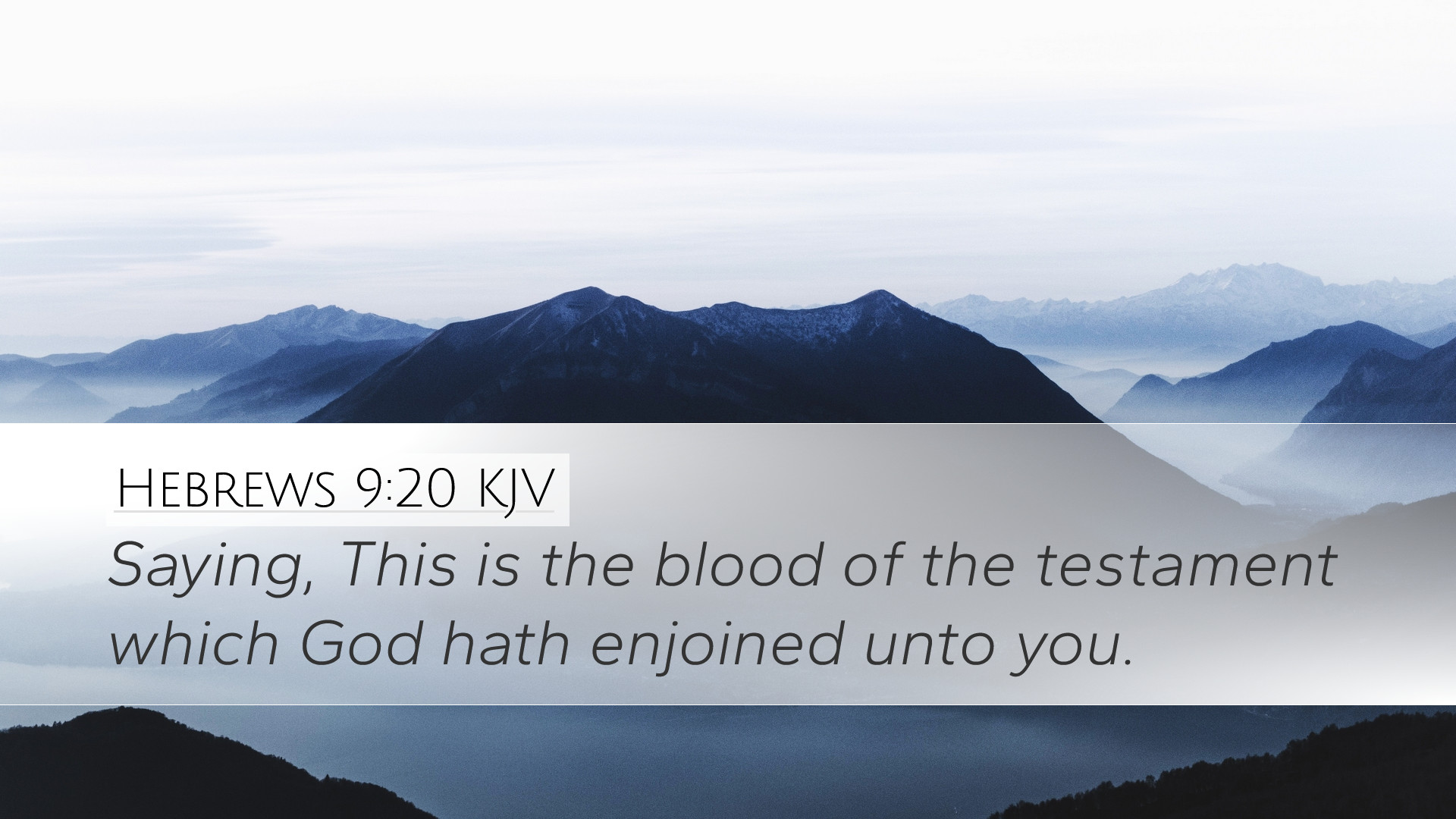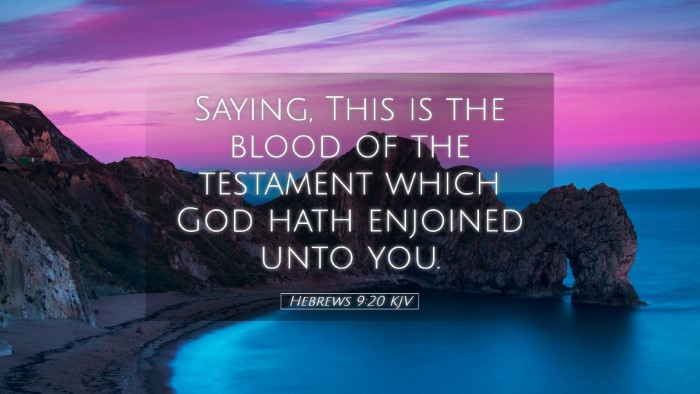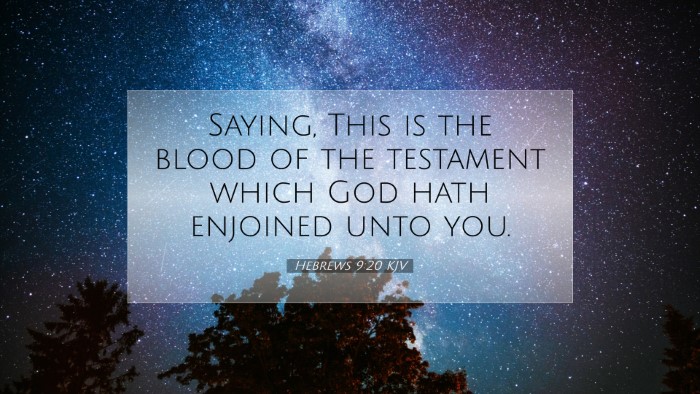Commentary on Hebrews 9:20
Verse Analysis:
Hebrews 9:20 states: "This is the blood of the covenant, which God hath enjoined unto you." This verse highlights the significance of the covenant established by God through the sacrificial blood, drawing a parallel with the Old Testament practice of sacrificial offerings.
Significance of the Blood in Covenant
The phrase "the blood of the covenant" connects deeply with the sacrificial system that was central to the worship practices of Israel. The blood signifies life and atonement, and it was necessary for the ratification of covenantal agreements. This notion is echoed in the writings of various commentators.
- Matthew Henry: He elucidates that the blood symbolizes the seal of the covenant, akin to how blood was sprinkled on the people and the altar in Jewish tradition, establishing a relationship of commitment and obligation between God and His people.
- Albert Barnes: Barnes emphasizes the idea of the obligation of the covenant, highlighting that Jesus Christ fulfilled and transcended the Old Testament sacrificial system by offering His own blood. This establishes a new and better covenant founded upon grace rather than law.
- Adam Clarke: Clarke notes the solemnity associated with the blood of the covenant, interpreting it as a divine commitment to humanity. He stresses the importance of recognizing the gravity of sin and the need for atonement through blood, which enables believers to understand the power of redemption in Christ.
Theological Implications
This verse serves as a theological cornerstone regarding the nature of covenants in Scripture. It invites reflection on several key aspects concerning God's promises and human responsibility.
- Covenant as Relationship: The idea of covenant signifies a profound relational dynamic between God and His people. It is not merely a contract but an intimate agreement grounded in love and commitment. Henry's insights help to illuminate how this relationship is established and maintained through the sacrificial blood.
- The New Covenant: The transition from the Old Covenant to the New Covenant is paramount in Christian theology. Barnes stresses that the ultimate sacrifice of Christ transforms the understanding of covenant, signifying grace and truth that surpass the law.
- Atonement: Clarke's observations about the necessity of atonement through blood echo the weight of sin in the narrative of redemption. Understanding the need for atonement heightens the appreciation of Christ's sacrifice, offering a context for discussing redemption.
Applications for Believers
Hebrews 9:20 encourages believers to engage deeply with the concepts of covenant and sacrifice. Various applications can be drawn from this verse that are significant for personal faith and communal practice.
- Commitment to God: The blood of the covenant calls believers to a life of commitment and faithfulness. Henry associates this with the call to live according to God's commandments, recognizing the blood as a reminder of obligations that come with the covenant.
- Embracing Grace: Barnes’ emphasis on grace through the New Covenant invites Christians to embrace the freedom and responsibility that comes with it. Believers are not bound to the law but are called to live in the empowerment of the Holy Spirit, reflecting Christ's character.
- Understanding Atonement: Clarke’s reflections encourage a deeper understanding of sin and redemption. This insight prompts believers to value the sacrificial death of Christ and to grasp the implications of their faith in terms of personal holiness and community ethics.
Conclusion
Hebrews 9:20 is not just an isolated verse; it is a vital part of understanding the wider narrative of Scripture concerning covenants. The interpretations by Henry, Barnes, and Clarke provide a multifaceted view that invites deeper reflection on the significance of blood in establishing divine relationships. For pastors, students, and theologians, this verse serves as a compelling reminder of the transformative power of God’s covenantal promises, urging believers to walk faithfully in response to the grace extended through the blood of Christ.


